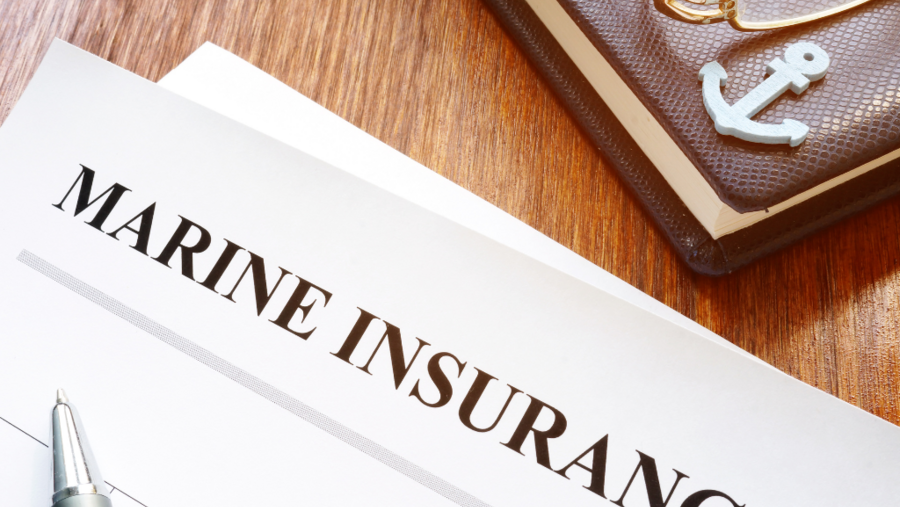
* Pantaenius UK Limited is authorised and regulated by the Financial Conduct Authority (Authorised No.308688)
As a proud boat owner, eagerly anticipating your next adventure, your marine insurance policy arrives. As you read through the pages, you are hit by a wave of confusion. The jargon feels like you are in unexplored waters. But don’t worry - we're here to guide you through the complexities of marine insurance.
At Pantaenius, our aim is clear, to empower policyholders by clarifying the intricate world of marine insurance. By breaking down complex terms and concepts, we can provide a comprehensive route to help you navigate your policy with confidence.

Boat insurance is vital for boat owners, offering protection against unexpected risks on the water. Understanding your policy and the cover it offers is essential to ensure you have the right protection in place for you and your boat.
Determining the right type of insurance depends on what you aim to protect. Boat insurance typically falls into two categories: Hull and Third Party Liability.
Hull insurance offers protection against loss or damage to the boat itself. Third Party Liability insurance covers liability risks linked to the use of your boat. While foregoing Hull Insurance and assuming the financial burden of damage is an option, we recommend, at the very least, taking out Third Party Liability insurance for essential protection. Most marinas mandate Third Party Liability insurance, underscoring its importance for boat owners.
Let us begin with the fundamental aspect of insurance: the premium. This is the amount you pay for your insurance cover. Premiums are calculated based on a variety of risk factors, including the owner's experience, the type and age of the boat, its usage, and its sailing location. Additionally, insurers consider the expected cost of settling claims. In instances where claims need to be settled or repairs need to be handled in distant areas, the claim costs may be higher due to unfamiliar repair facilities or the cost of transporting replacement parts.
Excess or deductible, refers to the amount you must pay in a claim. Excess amounts can vary as can its application. Understanding when it applies and its impact on claims will help you assess overall policy costs and benefits. By comparing excess levels across different policies, you can choose the option that best aligns with your budget and risk tolerance.
Sum Insured: This represents the amount for which you insure your boat. It should accurately reflect the cost of replacing your boat with one of similar type, age, fit-out, and condition in the unfortunate event of a total loss. It is crucial to understand two key aspects: First, what your insurance policy will pay out in the event of a total loss, and second, how claims for partial damage are settled. Some policies may pay you the specified insured value, while others may use the market value at the time of loss, which could result in negotiations for a settlement below the insured value. Additionally, insurers may have the option to average any claim settlement if they deem the insured value to be too low.
Keep an eye out for these terms when reviewing your policy. It is worth noting that the Pantaenius policy does not use market value at the time of loss or average in claim settlements.
New for Old: Insurers are expected to return your vessel to its pre incident condition as closely as possible, not improve it. If the insurers pay the full cost of a brand new part to replace an aged and partially worn item, then the policyholder has profited from the loss and has achieved betterment.
To maintain the core insurance principle of indemnity and to avoid betterment, insurers may therefore deduct an amount from the cost of replacing a used item with a brand new one (commonly referred to as a New for Old deduction).
Understanding what deductions apply, on what basis (age of the boat or equipment) and if they include labour costs, ensures transparency and avoids surprises during claims. It is always worth enquiring whether it is possible to opt out of New for Old deductions if your boat is likely to attract them.
Boating involves physical tasks such as hoisting sails and anchoring, which come with inherent risks. That is why it is important for boat owners to consider Personal Accident Insurance specifically designed for boating accidents. While Third Party Liability policies cover amounts for which you are legally liable, they may not cover injuries sustained by fellow crew members in accidents where you are not at fault.
Some insurers may include limited Personal Accident cover in their policy, while others offer a separate stand-alone policy for an additional premium. Pay close attention to the limits provided.
Marine Legal Expenses Insurance is another essential consideration for boat owners. This policy provides crucial legal support, covering legal costs arising from various disputes such as contract disputes related to servicing, repairing, or purchasing parts and equipment for your boat. It ensures comprehensive legal protection for boat owners when needed.
Every policy has its limitations. Understanding policy exclusions is imperative, as they determine the extent of cover. Insurance is designed to safeguard against the unexpected, so exclusions typically involve factors that can be anticipated or prevented, such as wear and tear or lack of maintenance. It is important to carefully examine policy wording to ascertain whether damage resulting from wear and tear is fully excluded or only the part that failed. Consider the consequences.
To understand your policy further check whether it is on an All Risks or Insured Perils basis. With an All Risks policy, your boat is covered for almost everything, except for the specific exclusions detailed in the policy. Essentially, unless an exclusion applies, you are covered. On the other hand, an Insured Perils policy provides cover only for what is explicitly noted in the policy.
Make sure to carefully read the policy wording – it is key to knowing what cover you have and more importantly what cover you do not have. If you have any doubts or questions, check. Remember, knowledge is power.
With a deeper understanding of insurance jargon, you will be able to make informed decisions about your cover. What may have seemed daunting before will now be something you can approach confidently. Take control of your cover today.
At Pantaenius, we're more than just your insurance provider – we are your partners in protection, ready to advise, support and educate you every step of the way.